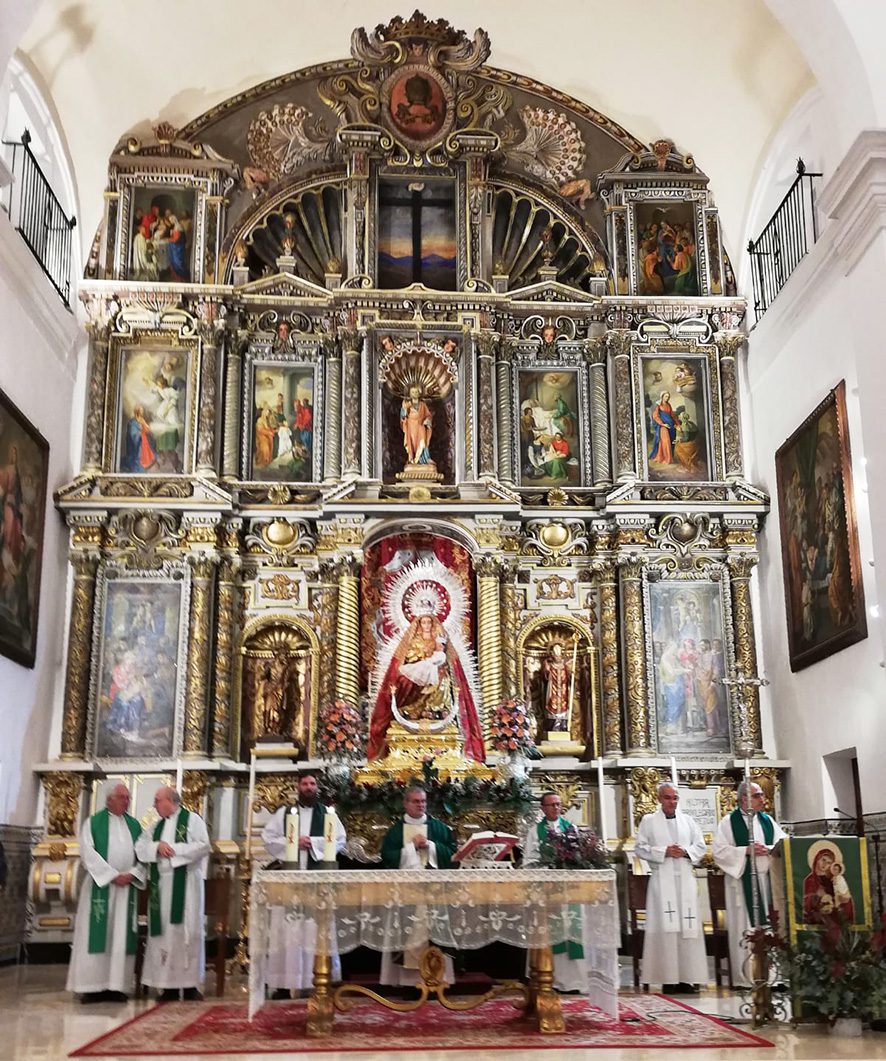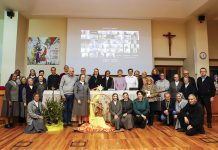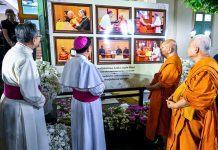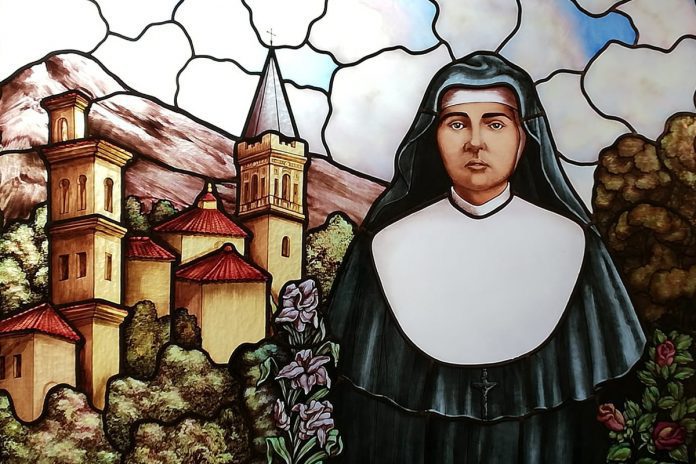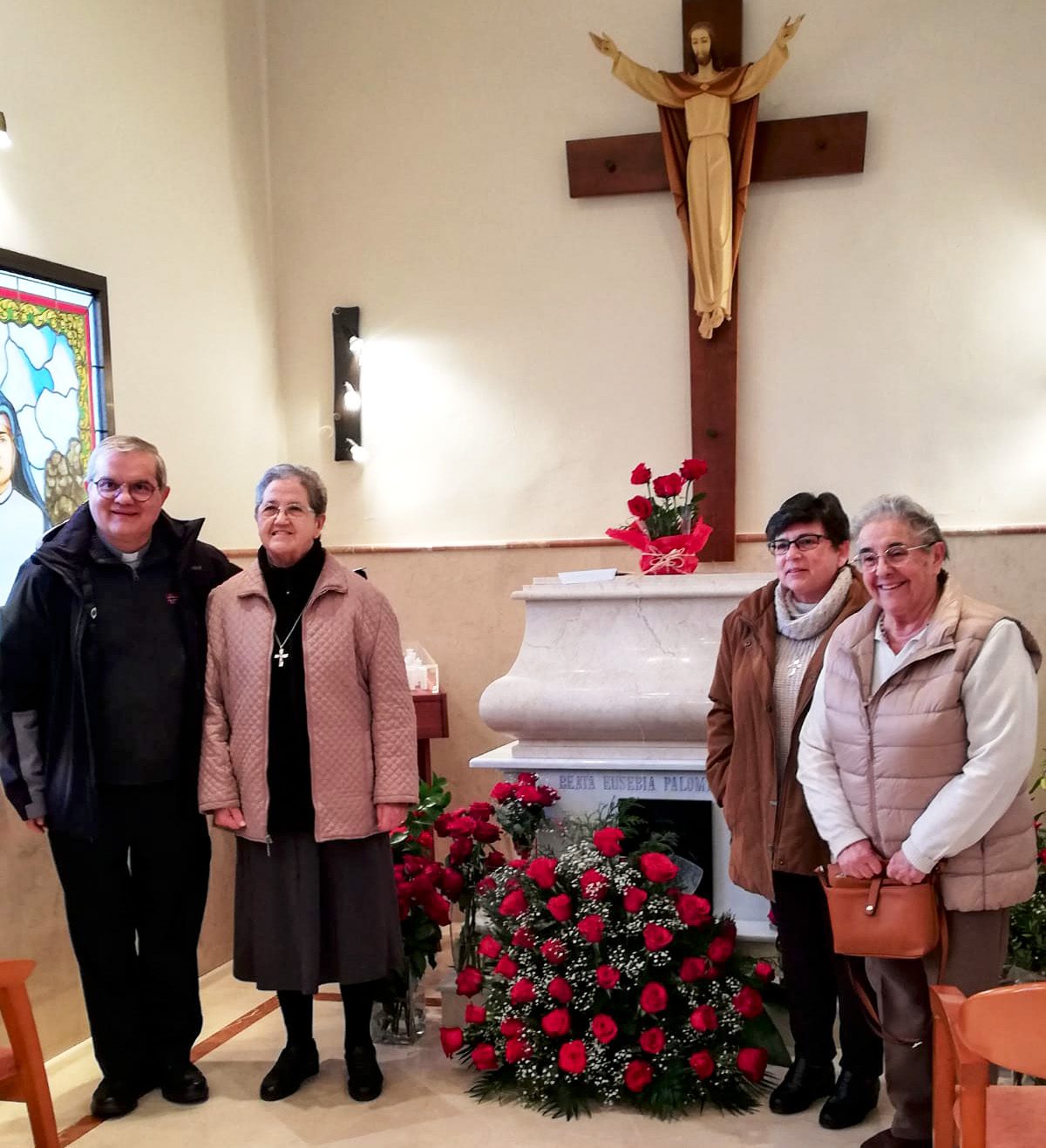Valverde del Camino (Spain). On 9 February 2023, the liturgical memorial is celebrated of Blessed Eusebia Palomino Yenes, Daughter of Mary Help of Christians who lived in Spain (1899-1935), beatified in Rome by St. John Paul II on 25 April 2004.
The Postulator General of the Salesian Family, Fr. Pierluigi Cameroni, shares the homily of the Eucharistic Celebration he presided over in the parish church dedicated to Our Lady of Repose on 5 February 2023, during a pilgrimage to Valverde del Camino. Welcomed by the local community of the Daughters of Mary Help of Christians of Mary Help of Christians Province (SPA) and by various members of the Salesian Family, he paused in prayer at the tomb of the Blessed and visited the small museum which preserves her memories.
In his homily, Fr. Pierluigi Cameroni underlined how holiness always permeates and accompanies the life of the pilgrim Church over time, often in a hidden and almost imperceptible way, illustrating how Blessed Eusebia Palomino embodied the word of God proclaimed in the Sunday liturgy.
Poor Eusebia who loves the poor
The first reading (Is 58: 7-10) recalls how concrete love for one’s brother/sister, especially for those who are most in need; being close to those in difficulty and living in poverty, makes life bright, “If you open your heart to the hungry, if you satisfy the afflicted in heart, then your light will shine in the darkness.”
Eusebia always had a compassionate and merciful heart because she had experienced first-hand the harshness of poverty. At 13, she finds work in Salamanca. Her detachment from her family is painful. She is hired as a servant in rich family, as a ‘criada’, that is, a housemaid, a new experience that does not intimidate her. When she goes shopping, she approaches the poor on the street and gives them the little she possesses. She cannot help stopping with the children to talk to them about Jesus, Our Lady, of their love for us. She feels tenderness for the lonely who are often disbanded, and with disarming simplicity like a little child, she gives them a medal of the Our Lady, and she reminds them of their Christian duties.
In Valverde, there are many small great episodes that amaze. One day, with precise and disconcerting information, she reassures a mother whose son is in the war in Morocco. Another time, she draws water from a dry well. Another day, she ‘doesn’t allow’ it to rain on a poor house under construction, lest the owner be harmed. Another time, she finds eggs in the chicken coop when the other sisters hadn’t found even one a moment before.
But the most beautiful miracle is her, the poor little ‘beggar’ of Cantalpino, who has become a masterpiece of God’s love. Looking at her we can sing that, “God has deposed the mighty from their thrones and raised the humble.” And in her wisdom, she tells us, “When one has no money or anything else to give, we can give the alms of prayer and address the poor with words of goodness, sweetness, and love that comfort them.”
Eusebia icon of Christ Crucified
“For I resolved to know nothing while I was with you except Jesus Christ, and him crucified. I came to you in weakness and fear and much trembling,” proclaims the apostle Paul forcefully (1 Cor 2:1-5).
A premonitory vision shows twelve-year-old Eusebia the saving power of the Wounds of the Crucified One, making her understand how her mission will have its center in the testimony of that truth of faith. Eusebia, intimately united to the Crucified and Risen One, forms to Christian hope, “May you always advance embracing the Cross, since in it lies strength, salvation, and light. Do not withdraw for a single moment from this sacred Wood; in this way, you will find much peace in sufferings and travails”.
You are salt of the earth and you are light of the world (Mt 5: 13-16)
Sr. Eusebia carried out the humblest functions of the house, all related to service: kitchen, doorkeeper, vegetable garden, and infirmary. As far as the apostolate is concerned, she is entrusted with the care of the youngest girls and the poorest and simplest people of the festive oratory. However, she was admirable in catechesis and many girls approached her, moved by curiosity towards a person who, although of little education, could give such a high explanation of supernatural things. Sr. Eusebia’s teaching in her catechesis, in a simple way and within the reach of those girls, was that of Don Bosco: flee from sin, love for the Eucharist, the conditions for receiving it, and love for the Virgin Mary.
Everything about Sister Eusebia reflected the love of God and the strong desire to make Him loved. She never missed an opportunity to approach girls and older people from all walks of life and convey the message of the Gospel. This is precisely the soul of Sister Eusebia’s apostolate during her brief existence: to be a catechist of girls, young people, mothers of families, seminarians, and priests and a humble and joyful witness of God’s love.
